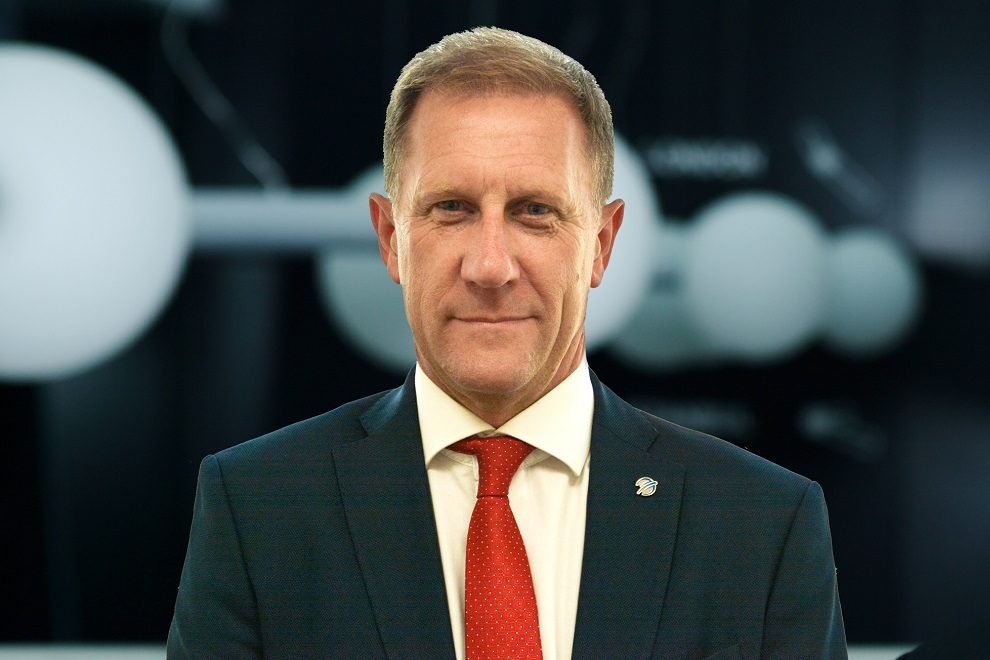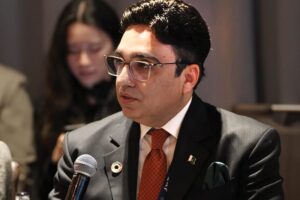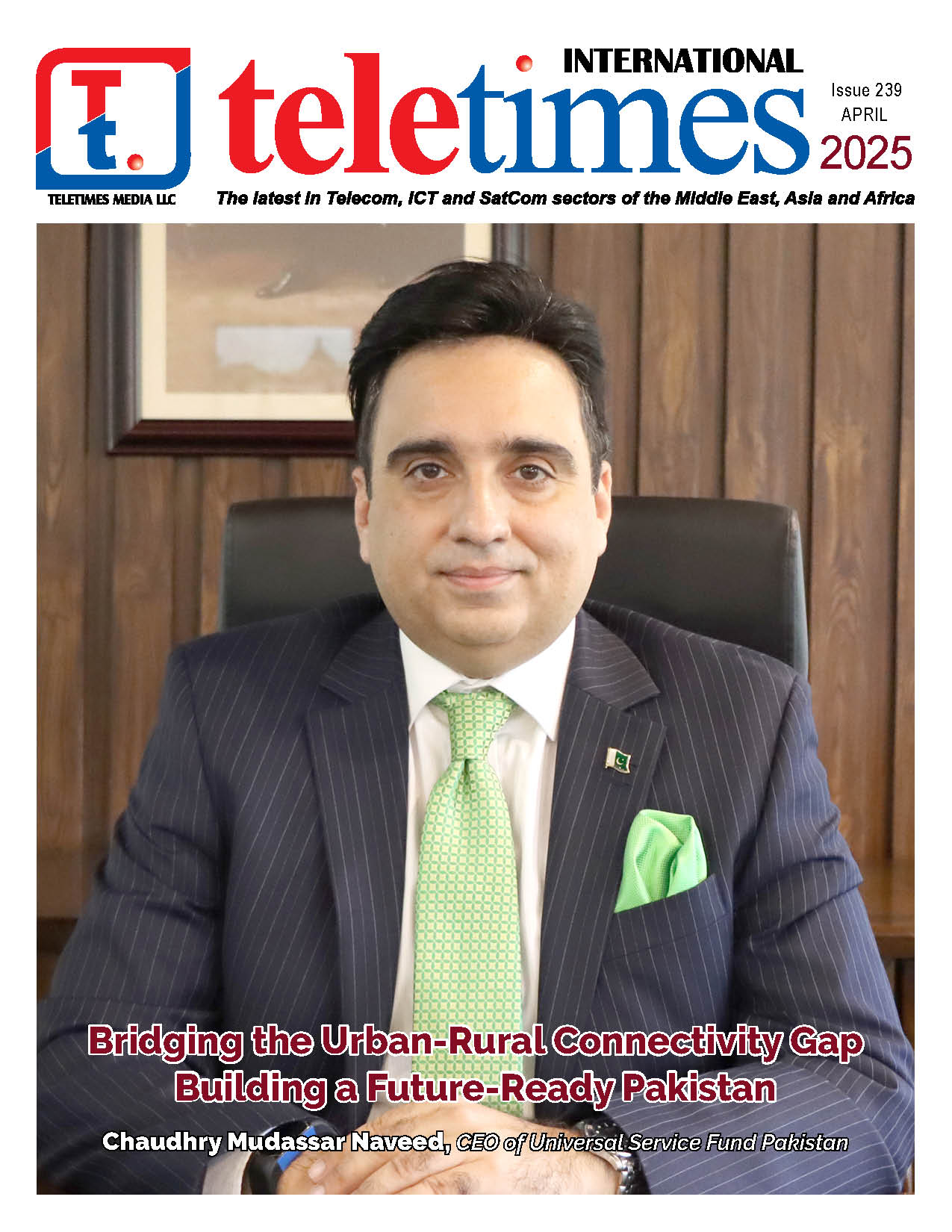One of Azercosmos’ biggest accomplishments was and is, its own founding and its successful operation
Established in 2010, Azercosmos is the only satellite operator in the South Caucasus, aspiring to turn Azerbaijan into a driving force of the global space industry. Keeping customised excellence at the heart of the organization, the company provides high quality, reliable telecommunications and Earth observation services in both the public and private sectors.
On the occasion of Azercosmos’ 10th anniversary, Mark Guthrie, Chief Commercial Officer at Azercosmos, spoke about Azercosmos’ plans for the next decade and shared his vision on the future of the space industry.
Teletimes: Mr. Guthrie, it is already your second year as the Chief Commercial Officer at Azercosmos, as well as your second year in a new country and culture. What was it exactly that drew you to Azercosmos, and Azerbaijan as a whole, and made you want to join the team in 2019?
Mark Guthrie: The Azerbaijani space industry, as well as the local satellite market, were quite new to me when I first joined Azercosmos a couple of years ago. One of the main things that attracted me not only to Azercosmos but to Azerbaijan as a whole, were the international development opportunities in many different spheres, including the space industry where I saw massive potential. Considering Azercosmos’ accomplishments over the past 10 years since its establishment, the company was positioning itself and working hard towards becoming the business and space hub in the region. To me, this signaled three key things: enthusiasm, determination and consistency – a powerful combination of qualities which drive success. Given that Azercosmos was a nascent business that aimed to grow, I wanted to contribute to their journey and help them break into the international business market.
Another reason that attracted me to the company was the experienced team of space professionals, despite only 10 years of Azercosmos’ operation. I was keen to experience the culture and rich diversity in Azerbaijan, I had been made extremely welcome by the people of Azerbaijan and it’s a wonderful place to live and work. The generosity of the people and they willingness to engage and develop, will I believe, ensure continued success for Azercosmos and Azerbaijan.
TT: What can you tell us about Azercosmos’ development over the years, from its founding in 2010 to where it stands today?
MG: As mentioned, Azercosmos was established in 2010 and in just 10 years, the company have managed to develop in so many different ways starting from the satellite fleet and the services provided to different regions, including Video, Data and Teleport services, the Earth observations services and products and ending with international cooperation and research and development activities.
The first telecommunication satellite, Azerspace-1 (46º E), was launched in 2013, followed by Azersky Earth observation satellite in 2014 and, our second telecommunication satellite Azerspace-2 (45.1º E) in 2018.
As years passed by, Azercosmos sought to expand its service portfolio and strengthen the relationship with our customers and partners. Speaking of our financial stability, 90% of Azercosmos’ revenues are generated from outside of Azerbaijan to over 50 countries globally. Our export portfolio consists mainly of leading companies in the United States, the United Kingdom, France, Germany, UAE and Malaysia. In 2020, Azercosmos’ revenues increased by 2% compared to 2019. Azercosmos earned $50.2 million revenue from the telecommunications and Earth observation services of our satellites. Increased company revenues in the COVID-19 era are a clear illustration of Azercosmos’ high adaptability and resilience, which stem from correct measures taken at the right time.
TT: Azercosmos is celebrating its 10th anniversary this year. A lot has been achieved in different spheres of company’s activities. What do you feel have been the greatest accomplishments over the past 10 years?
MG: I believe that one of Azercosmos’ biggest accomplishments was and is, its own founding and its successful operation, as it allowed for Azerbaijan’s establishment and recognition on the international arena as a space player.
Azercosmos’ improved brand awareness and recognition both locally and internationally is another accomplishment, which has now made the brand prominent in the regions we serve.
Our partnerships with Intelsat, Measat, Infostellar, iSAT Africa, Intersat and many other leading space players is definitely another accomplishment of Azercosmos, which adds to our company in many different ways. These key partnerships allow us to expand and reach diverse markets, helping us develop business and market opportunities and help shape and plan for the continued success of the space industry in Azerbaijan.
Another important accomplishment was the Tier 4 certification of our Baku teleport by the World Teleport Association, which guarantees almost 100% reliability and security of our technical infrastructure, work process and shows our team’s high level of professionalism.
Lastly, as a socially responsible business, we always remember to give back to our community through our CSR initiatives, be it by organising competitions, blood donation and fundraising campaigns, as well as internship and volunteering programs, aiming to increase the welfare of our community.
TT: Can you tell us more about Azercosmos’ services and market presence? What is it that differentiates Azercosmos from other satellite operators?
MG: As the first and only satellite operator in the South Caucasus region, Azercosmos’ market presence is strong in Azerbaijan, as well as in the local geographic region, including Turkey and the CIS countries. Azercosmos is also strong in Africa and the Middle East, where we have an extensive portfolio of services and solutions that we provide to our customers in those regions.
When it comes to what differentiates us from others, I would say that we are agile, responsive and customer-oriented, which we try to reflect in all of our marketing activities, sales negotiations and technical assistance. We are always seeking to do more and increase our knowledge of our customer requirements and work closely with them. And this comes primarily from our consultative approach to customers.
We are not trying to sell; we are trying to understand what our customers want and help them achieve their business goals – this is our point of difference. We have very talented multilingual team, which allows us to communicate and operate in the differing cultures and environments.
TT: Where do you see the most opportunities for Azercosmos, and do you anticipate any challenges going forwards?
MG: Well, there are certainly different ways of looking at it. If we assess the Azerbaijani TV market, it is maybe not as sophisticated as some of the European operators. It is still mainly SD as opposed to other platforms broadcasting channels in HD and UHD quality. If we compare the case to Europe, SD is being rapidly replaced by HD and is now moving towards 4K TV.
So, I think that there is an opportunity to improve the TV and Media market in Azerbaijan. There are opportunities to build a strong neighbourhood of TV channels via Azerspace-1 satellite for the CIS region, as well as moving services from SD to HD, and eventually to UHD in the next 3-5 years, is something we see as a development opportunity.
Apart from a strong bouquet of channels, more cooperation with other businesses within and outside Azerbaijan is what we are prioritising. We seek to focus on LEO and MEO constellations, and use these technologies to complement our GEO satellites, making our company and the services we provide well-rounded.
In the Azerbaijani market, there is also an opportunity to build internet over satellite for remote areas which lack fibre and/or cable. There are schools, colleges, hospitals in certain areas that lack good internet connectivity, so there is a need to focus on internal infrastructure problems first, and then look outside of Azerbaijan in terms of business opportunities within the market segments that we do not currently serve in but have huge potential to do so, such as oil & gas, maritime, government, healthcare, education and other areas.
TT: Azercosmos has accomplished quite a lot over the past decade. What are company’s plans for the next 10 years? Which areas of business operation are planned to be expanded?
MG: First and foremost, we look to continue to develop our business, both telecommunication and Earth observation services.
We are also looking to launch a new Earth observation satellite in the next five years. The launch of a telecommunication satellite in 9 years’ time is also on the horizon, as well as our plans to explore Ka-band, S-band and L-band frequencies to improve the quality of services provided in our target regions.
Apart from that, we are determined to develop and make Baku an international gateway for communications and a major point of presence on the globe, connecting Europe and Asia. We are also planning more cooperation, collaboration and partnerships with international companies that can provide innovative and creative solutions to the space industry.
One of our other major goals is to help and assist in the development of the space industry in Azerbaijan, as well as build out more industry-related opportunities within the fields of Artificial Intelligence (AI), Virtual Reality (VR), and Research and Development.
Coming to collaboration, we aim to build better communication infrastructure and a more cohesive communication strategy, working closely with Azerbaijan’s telecommunication providers such as Azercell and Aztelekom.
We also have the International Astronautical Congress (IAC), the most prestigious global space event, to host in 2023, which is a great honour. We would like to build on the exposure we receive from the IAC and increase the awareness and image of Azercosmos and Azerbaijan in the global space industry.
And finally, we look forward to identifying and developing talent among the Azerbaijani youth, attracting them to the space industry through university courses, exchange programs and other tools to strengthen local human capital.
TT: On a larger scale, we know that the roots of Azerbaijan’s space industry go back to the 12th century. From your point of view, what is the significance of the space activities in this region, particularly in Azerbaijan, to the global space sector?
MG: Azerbaijan has a lot to offer. Despite being among young and developing economies, Azerbaijan, as a transportation hub, is also turning into a business, space and technology hubs of the region. As a matter of fact, Azercosmos has a group of talented engineers, developers and specialists in the fields of AI and Robotics, who contribute to our company with innovative solutions and technologies and initiate various projects and competitions to foster the development of high technologies and help us further identify young talent in the space field. Through collaboration and investment, we aim to expand and develop other space related activities and opportunities in Azerbaijan to further enhance the country as a major player in the space arena.
In addition to that, and as previously mentioned, the International Astronautical Congress will be taking place in Baku in just a couple of years, gathering leading space agencies, scientists, young professionals, students and many space enthusiasts from all over the world. This will definitely contribute to the global space platform with many new ideas, discussions and debates, while also creating opportunities for guests to immerse in Azerbaijan’s rich culture.
These are just a few examples of our contribution to the global space sector, and we are very excited to bring out even more of country’s potential.
TT: Where do you think the global space industry is heading in the third decade of the 21st century? What new verticals can you imagine the industry playing in over the next few years?
MG: Looking into the future, I think that the satellite market is adapting a more integrated approach between different types of satellites to provide much more versatile, flexible and cohesive communications, driven by the market requirements. Something that is currently trending and will be trending for the nearest future, is the transformation of traditional services, such as healthcare and education, to be more accessible than ever before through telemedicine and remote learning, respectively.
And obviously, as all online platforms depend on data and satellites, the telecommunications segment will need to adjust and improve to meet the growing demand worldwide. AI, VR and Augmented Reality will also keep developing and, together with remote learning and remote work concepts, it will soon be possible to do trainings virtually without leaving your home.
From the infrastructure point of view, as we move forward, smart cities are going to become more commonplace utilising IOT and ML to improve and manage data and analysis. Many things will be interconnected not only in terms of communication but also in terms of infrastructure management and operations. I believe, this will include such things as driverless and autonomous vehicles, allowing for the space industry to play a big role in the formation of these systems.








